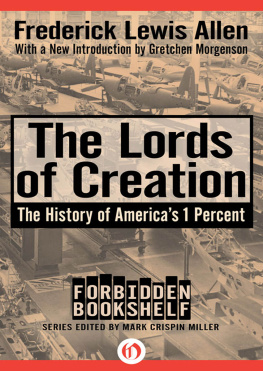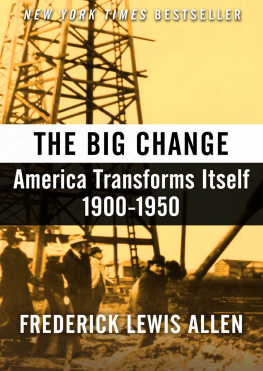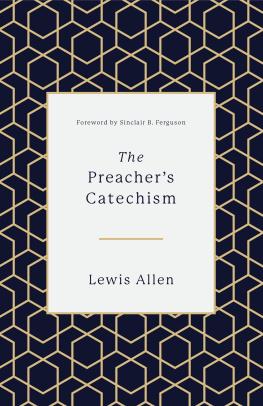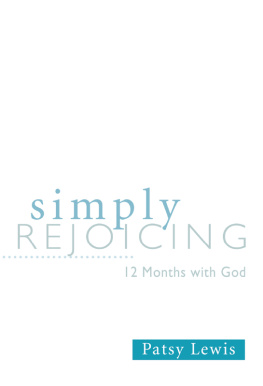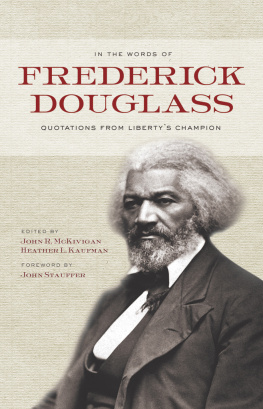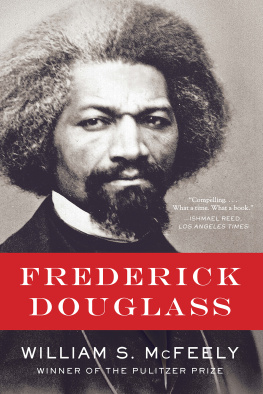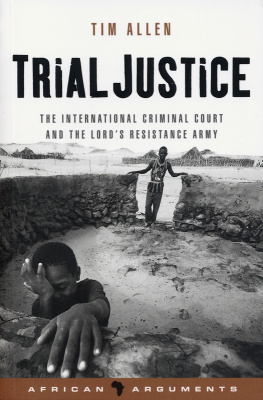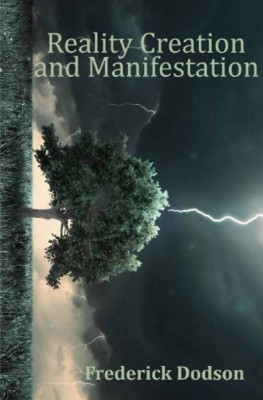Frederick Lewis Allen - The Lords of Creation
Here you can read online Frederick Lewis Allen - The Lords of Creation full text of the book (entire story) in english for free. Download pdf and epub, get meaning, cover and reviews about this ebook. year: 2014, publisher: Open Road Media, genre: Science. Description of the work, (preface) as well as reviews are available. Best literature library LitArk.com created for fans of good reading and offers a wide selection of genres:
Romance novel
Science fiction
Adventure
Detective
Science
History
Home and family
Prose
Art
Politics
Computer
Non-fiction
Religion
Business
Children
Humor
Choose a favorite category and find really read worthwhile books. Enjoy immersion in the world of imagination, feel the emotions of the characters or learn something new for yourself, make an fascinating discovery.
- Book:The Lords of Creation
- Author:
- Publisher:Open Road Media
- Genre:
- Year:2014
- Rating:4 / 5
- Favourites:Add to favourites
- Your mark:
- 80
- 1
- 2
- 3
- 4
- 5
The Lords of Creation: summary, description and annotation
We offer to read an annotation, description, summary or preface (depends on what the author of the book "The Lords of Creation" wrote himself). If you haven't found the necessary information about the book — write in the comments, we will try to find it.
The Lords of Creation — read online for free the complete book (whole text) full work
Below is the text of the book, divided by pages. System saving the place of the last page read, allows you to conveniently read the book "The Lords of Creation" online for free, without having to search again every time where you left off. Put a bookmark, and you can go to the page where you finished reading at any time.
Font size:
Interval:
Bookmark:

The Lords of Creation
The History of Americas 1 Percent
Frederick Lewis Allen
With a New Introduction by Gretchen Morgenson

To A. R. A.
Chapter One
MORGAN CALLS THE TUNE
ON THE evening of the 12th of December, 1900, two gentlemen of New York gave a large dinner to Charles M. Schwab, the energetic young president of Andrew Carnegies great steel company.
The dinner was private and unpublicized; as one turns the yellowed and brittle pages of the New York Times of the following morning, one finds no mention of it whatever. The two most striking events of December the twelfth, 1900, to judge from the front-page headlines of the Times, were an advantage gained by DeWet, the Boer general, over the British in the war in South Africa, and an accident in a six-day bicycle race in Madison Square Garden. Yet the Schwab dinner at the University Club on Fifth Avenue was one of those events which direct the destinies of a nation.
For at this dinner John Pierpont Morgan, by common consent the leader of the financial forces of the day, sat at Schwabs right hand; and it was Schwabs irresistible persuasiveness as an after-dinner speaker which convinced Morgan that the time had come to organize the United States Steel Corporation, and thus to strike the resounding keynote of the theme of American financial and economic life for more than thirty years to come.
A new century was beginning; but more than that, a new era for America was beginning. The dragging business depression which had blighted the country after the panic of 1893 had come to an end in 1897; bumper wheat crops in the United States and simultaneous crop failures in Europe had turned the tide that summer-almost precisely as they had turned it in 1879, at the end of a previous span of lean years. (Here is an ironical circumstance for the contemplation of those who preach the economic interdependence of nations: that recovery in America should twice have been hastened by catastrophic conditions abroad!) New industrial processes were ready for development; the age of mass production, the electrical age, were on their way. The amiable William McKinley sat in the White House; Senator Mark Hanna, to whom the welfare of big business and the welfare of the country were almost indistinguishable, stood behind McKinley, ready with encouragement and advice; business men felt sure that the affairs of the United States would be managed with a conservative regard for the rights and privileges of property. The boom which began in 1897 was only momentarily interrupted by the outbreak of the Spanish War. Prosperity had returned.
But it had returned to a very different country from the America of the eighties and early nineties.
The frontier had now for many years been closed. No longer could Americans depend upon hopeful expansion into the free lands beyond the plains as a safety-valve for the pressure of industrial competition. Two alternatives confronted a nation accustomed to restless growth: conquest beyond the seas, and intensive economic development within its natural boundaries.
The idea of outward conquest had been given a powerful impetus by the opera-bouffe victory in the Spanish War, which had bestowed upon a surprised country a group of islands across the Pacific. The troops were hardly back from Cuba, the echoes of Therell Be a Hot Time in the Old Town Tonight were still floating on, the air, and Admiral George Dewey was still the nations adored hero, when Rudyard Kipling wrote The White Mans Burden, and its lines became familiar almost overnight. To many enthusiastic citizens it seemed as if American shoulders were built for that burden. President McKinley told a group of Methodists that we must accept sovereignty over the Philippines to educate the Filipinos, and uplift and civilize and Christianize them; to another less pious audience he said that the Philippines offered a commercial opportunity to which American statesmanship could not be indifferent. Early in 1900 Senator Beveridge was proclaiming that America must follow the judgment of the Master: Ye have been faithful over a few things; I will make you ruler over many things. It is true that a considerable body of American opinion was very dubious about our sacred duty to our little brown brother and hated the whole imperial conception; but McKinley and his mentors chose expansion as the issue of the 1900 campaign against Bryan, and it was a winning issue. The mood of the day was confident; in the flush of victory most Americans probably believed that their country could easily assume dominion over palm and pine if she chose to take the trouble.
As it happened, no further direct expansion of American territory was destined to take place; but the new and intoxicating idea that America was now an imperial power, fit to assume the obligations of a great force in world affairs, had striking financial and economic effects. For the first time in history, America was now lending money to Europe in quantity: between 1899 and 1902, New York took over two hundred million dollars of the British Exchequer loans to finance the Boer War. American foreign trade was growing, the captains of industry had begun to dream extravagant dreams of the capture of foreign markets, and on both sides of the Atlantic there was talk of the possibility that New York might displace London as the financial center of the world. The national ego was enlarging. America was enjoying the responsibilities and releases of maturity.
Meanwhile, however, the intensive development of the national economy was proceeding still more rapidly. In the three or four years immediately preceding that dinner at the University Club when Morgan and Schwab sat cheek by jowl, the organization and character of American business had been undergoing a profound change, with consequences which were to reach into the daily lives of millions.
This change had been in preparation for a very long time. To understand the nature of it and the reasons for it we must go back to the days when the name of Pierpont Morgan was unknown outside of Wall Street and Charles M. Schwab was a little boy playing about his fathers livery stable in a village in the Alleghany Mountains.
In the eighteen-seventies and eighteen-eighties the accepted principle of American business was free competition. Almost everybody believed in laissez-faire; the ideal economic order, it was generally thought, was a sort of endless game which anybody could enter, with the government serving as referee and intervening only to prevent flagrant holding and roughing. At the beginning of this period most businesses were small, few did business on a national scale; and if a competitor became crippled in the game, there were always other fields in the West where he could begin again unhandicapped. The standards of fair play were low, for the referee was often not only absent-minded but venal: the economic history of those years is full of stories of piratical methods in the fight for business advantages and markets. But the ideal of free competition was not seriously disputed.
In business as in a game, however, the score does not always remain at a tie; and in this particular game there were sometimes so many players and the play was so fierce that heads were broken. During the eighteen-eighties competition among the railroads, for example, got completely out of hand; it was easy for daring and unscrupulous plungers to build new lines simply as a form of economic blackmailin order to be bought off by their competitors in self-defense; at one time there were five lines bidding against each other for the traffic between New York and Chicago, two more were under construction, and the passenger fare for the through trip had been beaten down to the ruinous figure of one dollar. During the oil boom in Western Pennsylvania some years earlier, so many fortune-seekers had rushed to sink oil wells that the price of oil dropped to the depths, carrying men down with it to bankruptcy. In such situations, some device for limiting competition seemed to be necessary. It was provided, not by the law, but by agreements among groups of the competitors themselvesagreements to share privileges, maintain prices, and choke off cut-throat attacks on the part of their rivals.
Font size:
Interval:
Bookmark:
Similar books «The Lords of Creation»
Look at similar books to The Lords of Creation. We have selected literature similar in name and meaning in the hope of providing readers with more options to find new, interesting, not yet read works.
Discussion, reviews of the book The Lords of Creation and just readers' own opinions. Leave your comments, write what you think about the work, its meaning or the main characters. Specify what exactly you liked and what you didn't like, and why you think so.

